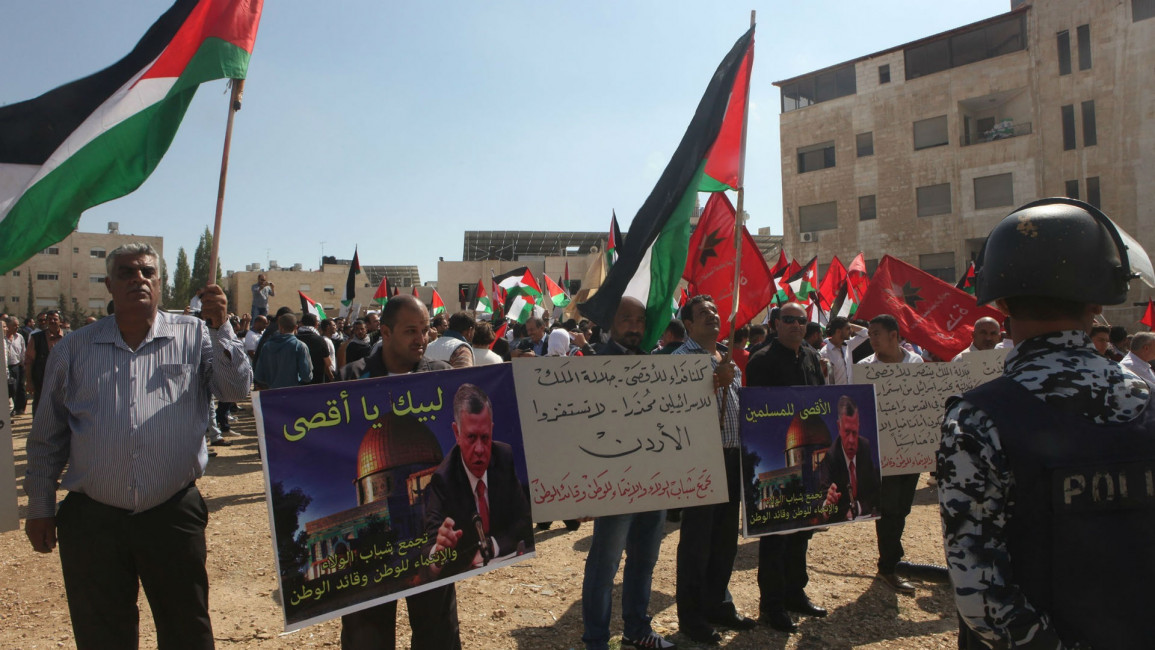Jordan says Israeli policies 'testing patience'
Jordan was becoming fed-up with Israel's practices at Jerusalem's al-Aqsa mosque compound and in the rest of Palestinian territories, Jordanian minister of Islamic affairs said on Tuesday.
Hayel Abdul Hafez Daoud blamed the Israeli authorities for the ongoing tensions in Palestine and rejected Israel's argument that Palestinian youths were responsible for the current situation.
"The situation in Jerusalem and Palestinian territories today threatens the region and its stability," Daoud said in an interview during the opening of the 17th international forum for Arab and Religious Tourism, hosted by Amman.
"It is obvious that Israeli authorities do not take this [threat] into account, and are unaware of the gravity of its
| Palestinians fear that increasing visits by Jewish groups to the site are eroding Muslim religious control there. |
practices," he said, adding that the stabbings carried out by Palestinian youths came as a reaction to Israel's escalation and provocation.
"Jordan is now considering political options, instead of the previous diplomatic and legal options," he added, "which means it is now becoming fed-up with Israel's practices."
Daoud did not elaborate on what kind of measures his country would take, but he said that Jordan would recall its ambassador from Tel Aviv if necessary.
Palestinians fear that increasing visits by Jewish groups to the site, captured by Israel when it seized East Jerusalem and the rest of the West Bank from Jordan in a 1967 war, are eroding Muslim religious control there.
Jewish ultra-nationalists have been pushing the Israeli government to allow Jewish prayer on the compound outside al-Aqsa.
Such worship, certain to stir Muslim anger, has been banned on the plaza by Israel since 1967 and Netanyahu has said he would not allow any change.
Clashes between Israeli police and Palestinian youths last erupted outside al-Aqsa in July, on the annual Jewish day of mourning for Jerusalem's two destroyed Biblical temples, and last October as Muslim anger mounted at the presence of Jewish worshippers at the site over Jewish holidays.
In 2000 Ariel Sharon, then Israel's opposition leader, visited the compound. That enraged Palestinians and led to an uprising, or Intifada, that continued for five years and left about 3,000 Palestinians and 1,000 Israelis dead.
Palestinians want East Jerusalem, annexed by Israel in a move not recognized internationally, as the capital of a state they aspire to establish in the West Bank and Gaza Strip. Israel regards all of Jerusalem as its indivisible and eternal capital. Peace talks collapsed in 2014.



